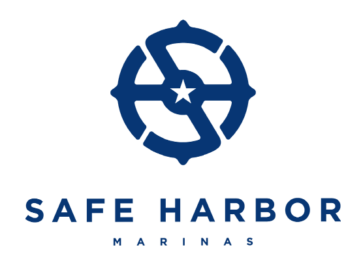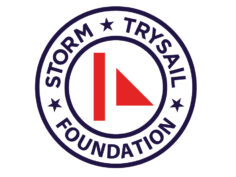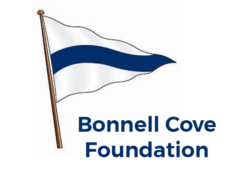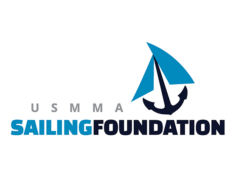In the afternoon, everyone, including the panelists and Sir Robin, actively engaged in breakout group sessions to focus on eight specific Leadership topics that are relevant to offshore sailing. The goal was to explore, dissect, define, and learn from each of the subject areas.

The breakout groups’ discussion Leaders were given a core concept statement from which to work, a list of group members, a “scribe” to help capture the group’s work, and a template for reporting their findings. It should be noted that these “scribes” tended to be younger sailors who brought to their respective committees a fresh perspective and energy in recording and recapping the discussions. Each group communicated in the weeks prior to the OSLS to explore their subject and prepare for the formal breakout meetings. The output of these groups provided deeper understanding of the fundamentals of good Leadership, including a detailed explanation of the specific core Leadership topic, key findings, and a comprehensive list of best practices, things to avoid, and training recommendations. Links to each group’s more detailed descriptions of best practices (see Appendix 2) and training recommendations (see Appendix 3) are provided in each group’s summary.
Breakout Group Topics
Foundational Leadership Skills: Facilitator, Scribe
A. Character: John Storck, John Storck III
B. Responsibility & Accountability: David Tunick, Erik Storck
C. Team Leadership & Followership: Ralf Steitz, Taylor Walker & Lindsay Gimple
D. Communication: Ed Cesare, Erica Lush
E. Preparation & Anticipation: Sheila McCurdy, Justin Bauer
F. Sail the Way You Train, Train the Way You Sail: Renee Mehl, Jake Kiggans
G. Situational Awareness: Dick York, Don Poirer
H. Emergency Management: Jack Cummiskey, Ariel Nechemia
Each group was tasked with three goals:
- Clearly and concisely define the assigned Leadership topic,
- Identify and explain best and worst practices (recapped separately in Appendix 2 with links provided at conclusion for each topic), and
- Recommend improved training techniques for the respective topic (recapped separately in Appendix 3 with links provided at conclusion of each topic and consolidated in a separate Chapter: Proposed Training Changes.)
The recap of each group includes:
- A description of the concept being discussed.
- An overview of key findings.
- Topline best practices.
- A brief list of things to avoid.
- Topline recommendations.
- Links to the respective Appendices with detailed descriptions of every best practice and recommendations stemming from the respective group.
- Breakout group rosters with the Facilitator and Scribe noted.
For purposes of this Report, the terms “Skipper” or “Owner” should be considered interchangeable. If a yacht Owner cannot make the voyage, and designates someone else to be Skipper, that Skipper must act in full in that role. If there is a mishap, it may take a judge to unwind legal liability. If the Owner is aboard but is not the Skipper, there must be a very clear assignment, and acceptance, of responsibility between the Owner and Skipper as to who is the Person-in-Charge. In commercial situations such as merchant marine or charter yachts, the Skipper (captain) is probably not the Owner, but that distinction is not the focus of this Report.







